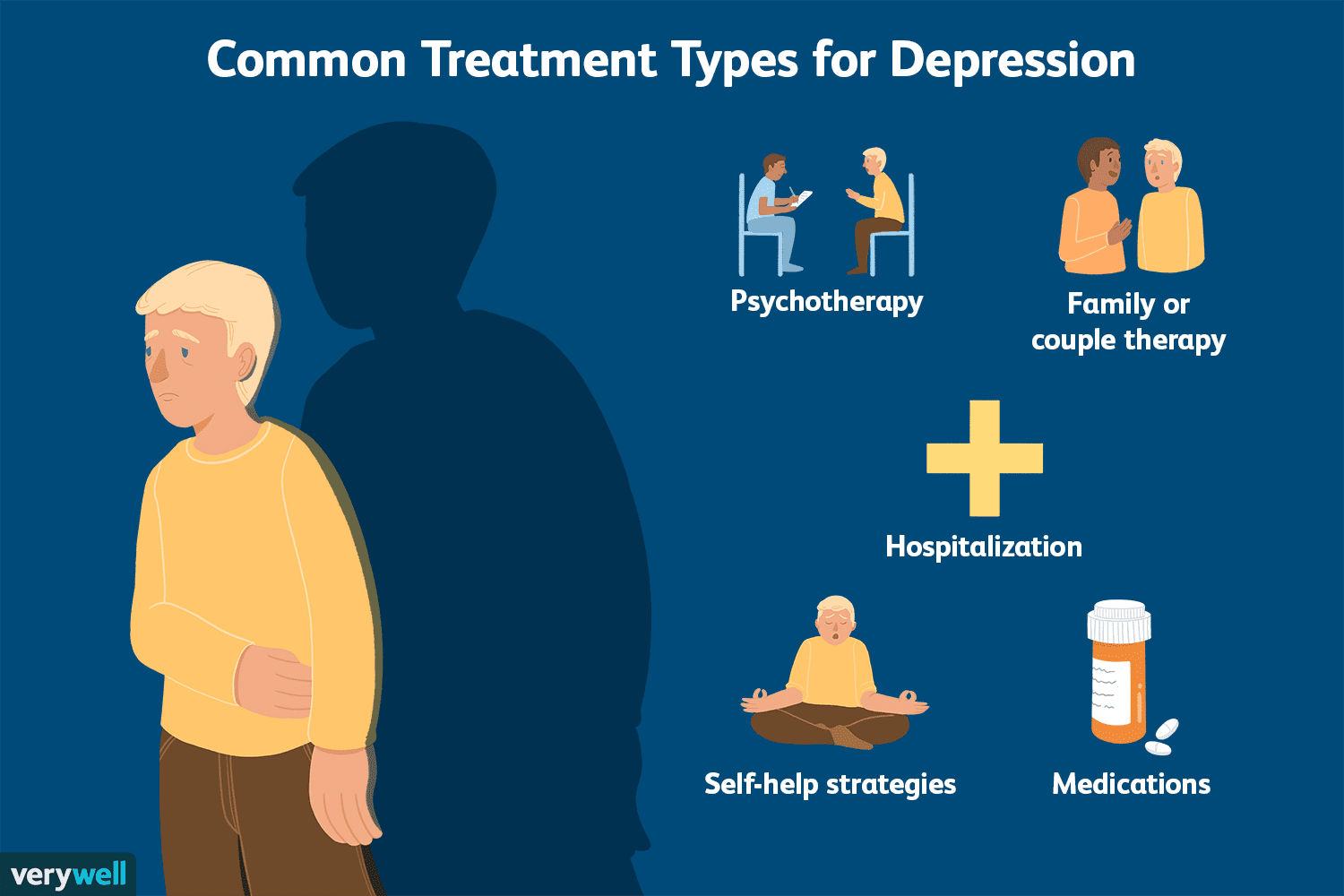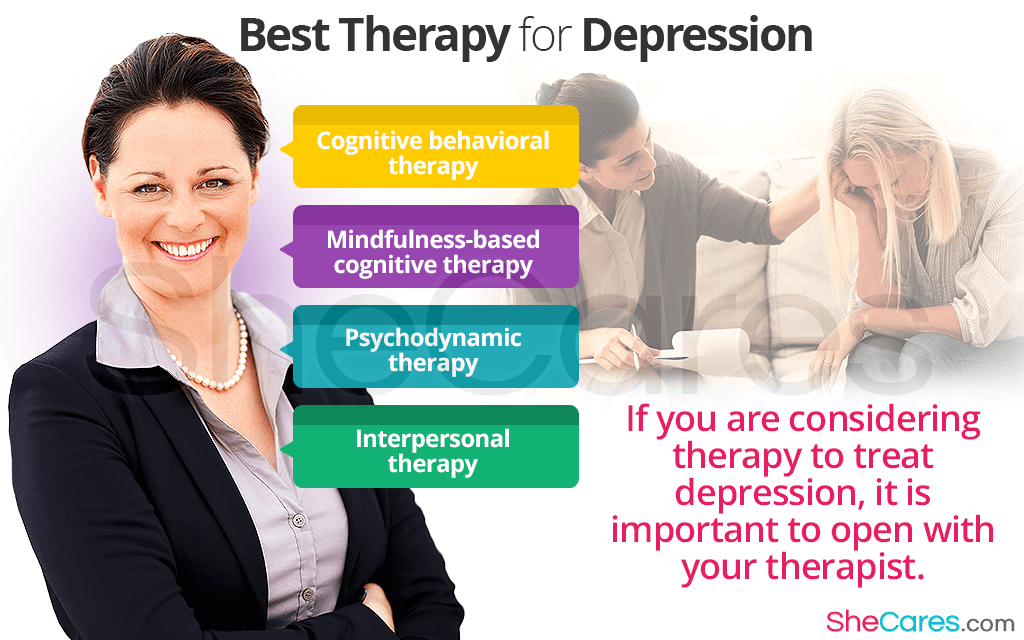How Is Depression Diagnosed
Although common, depression is often ignored or wrongly diagnosed and left untreated. This can be life-threatening major depression, in particular, has a high suicide rate.
If you or a loved one have symptoms of depression, seek help from a qualified health care professional. Many primary care doctors diagnose and treat depression. Screenings for depression are now often part of a routine visit to your doctor. But if your symptoms get a lot worse or do not improve within 4 to 8 weeks of treatment, ask your doctor for a referral to a psychiatrist for diagnosis and treatment. Clearly, for more severe symptoms — and always if you have thoughts about death or hurting yourself or someone else — you should see a psychiatrist as soon as possible.
To diagnose depression, your doctor will ask you about your symptoms and family history. They may want you to fill out a questionnaire about your symptoms. You may get medical tests to rule out other conditions that may be causing your symptoms, such as a lack of certain nutrients, underactive thyroid or hormone levels, or reactions to drugs or alcohol.
Other Causes Of Depression
There are a number of things that can lead to developing depression.
- Stressful events big changes in your life, like bereavement, the end of a relationship or the loss of a job, can be difficult to deal with. When these things happen, it’s important to keep seeing friends and family instead of trying to deal with problems alone this increases your risk of developing depression.
- Giving birth pregnancy and birth can make some people vulnerable to depression. Postnatal depression can happen as the result of physical changes, hormonal changes, and the responsibility of taking care of a new baby.
- Loneliness your risk of depression gets higher if you aren’t in contact or spending time with family and friends.
- Personality some personality traits can put you at a higher risk of developing depression. These include low-self esteem or a habit of criticising yourself too much. These personality traits can come from your genes, which you get from your parents, or they can be as a result of experiences in your early life.
- Family history it’s more likely for someone to develop depression if a family member, like a sibling or parent, has experienced it before.
Treating Depression With Therapy
There are 3 common types of therapy available that have good track records for treating depression:
- Cognitive Behavioral Therapy helps assess and change negative thinking patterns associated with depression. The patient can learn coping strategies by recognizing negative thoughts. This is a structured therapy that is often limited to a certain number of visits, possibly 8-16 sessions.
- Psychodynamic Therapy encourages the patient to look at negative behaviors and try to recognize and then change them. Its theory is that bad patterns and feelings are rooted in past experiences, which the therapist works with the patient and tries to tap the unconscious processes that have led to problems and then to help change them.
- Interpersonal Therapy looks at personal relationships and encourages the patient to make changes in life. The focus is to learn from the therapist how to improve problems and how to evaluate interactions to improve how they relate to others.
Read Also: What’s A Cone Of Depression
Acceptance And Commitment Therapy
In ACT, acceptance and mindfulness are key. One of the main goals of ACT is to help people live according to their values while coping with uncomfortable thoughts and feelings.
If you live with depression, ACT may help you:
- focus on the present
suggests PST can help people with depression learn to cope with stressful problems in their daily lives.
Who Is At Risk For Depression

Depression can affect anyone, no matter their age, gender or circumstances. About 16 million Americans experience depression each year.
Women may experience depression more often than men. And your genetics or other health conditions can increase the likelihood that youll have at least one depressive episode in your lifetime.
You May Like: What To Eat When You Have Anxiety Disorder
How Can I Take Care Of Myself
Once you begin treatment, you should gradually start to feel better. Go easy on yourself during this time. Try to do things you used to enjoy. Even if you dont feel like doing them, they can improve your mood. Other things that may help:
- Try to get some physical activity. Just 30 minutes a day of walking can boost mood.
- Try to maintain a regular bedtime and wake-up time.
- Eat regular, healthy meals.
- Do what you can as you can. Decide what must get done and what can wait.
- Try to connect with other people, and talk with people you trust about how you are feeling.
- Postpone important life decisions until you feel better.
- Avoid using alcohol, nicotine, or drugs, including medications not prescribed for you.
New Medications And Faster Results
There’s a long-held idea that depression takes weeks or months to resolve. But new fast-acting treatments have “changed what we think is possible in the field,” Sanacora says.
In 2019, the FDA approved brexanolone . It’s the first drug specifically for postpartum depression, which is a type of major depression. Experts aren’t exactly sure how it works. But it’s a human-made version of a steroid your body makes naturally. It affects your GABA receptors, which help regulate mood.
Brexanolone isn’t as easy to take as other antidepressants. You get it through a vein in your arm at a health care facility over the course of 60 hours. But it can work quickly. Your depression symptoms might start to lift by the end of your treatment.
Another breakthrough drug came out that same year.
Esketamine is a prescription nasal spray. The low-dose psychedelic drug boosts the activity of glutamate in parts of your brain related to mood. Glutamate’s job is to excite cells in the brain and nervous system. Esketamine can trigger new connections in your brain too. You may start to see improvements in your depression within hours or days of using it, Sanacora says.
Esketamine offers lifesaving hope for people with suicidal thoughts and relief for people with treatment-resistant depression. But used alone, symptom relief may only last a couple of weeks. That’s why experts agree you should take rapid-onset drugs alongside traditional treatments.
You May Like: Does Birth Control Cause Anxiety
Apa Offers New Guidance For Treating Depression
The APA guideline is the first to take an in-depth look at psychotherapy as well as pharmacotherapy options for treating depression
Vol. 50, No. 8
Monitor on Psychology50
CE credits: 1
Learning objectives: After reading this article, CE candidates will be able to:
For more information on earning CE credit for this article, go to .
Major depression is the second-leading cause of disability worldwide. In the United States, an estimated 6.7% of adults and 11.7% of adolescents experienced at least one episode of major depression in the past year, according to the National Survey on Drug Use and Health by the U.S. Substance Abuse and Mental Health Services Administration . Yet, too often, depression goes untreated, exacting a significant human toll. Depression impairs quality of life and interpersonal functioning, increases the risk of suicide and substance use disorders and is associated with a raft of physical health problems, including an increased risk of heart disease, stroke, diabetes and Alzheimers disease.
A summary of the literature review and guideline follows.
Alternative Medicine For Depression
As with any alternative or complementary medicine, check with your doctor before starting it, especially if you are taking other medications or treatments.
Herbal remedies for depression
Several studies show that the herb St. John’s wort is as successful at improving symptoms of mild to moderate depression as prescription medications, often with fewer side effects. But other reports show that the herb isn’t any better than a placebo in treating depression. Although it is considered safe, St. John’s wort can be dangerous if taken with other antidepressants , including certain medications used for treating HIV, cyclosporine, a drug used in organ transplant patients, or anticoagulant drugs. It can also interfere with oral contraceptives and medications used for heart disease and seizures.
S-adenosyl-methionine , another herbal remedy, is also sometimes considered to be a useful treatment for depression, although medical studies have not been conclusive.
Although ginkgo biloba is typically used as a way to improve memory and ease confusion, it has proved in some cases to work better than a placebo for the symptoms of depression and is approved by the German government’s Commission E for this purpose.
Whatever herbal remedy you may decide to take to treat a medical condition, it is always best to talk with your doctor first, especially if youââ¬â¢re taking prescription medications for the same or other conditions.
Massage for depression
Acupuncture for depression
Show Sources
Read Also: How Do Bipolar People Act When Drunk
Can Depression Be Prevented
You can help prevent depression by getting enough sleep, eating a healthy diet and practicing regular self-care activities such as exercise, meditation and yoga.
If youve had depression before, you may be more likely to experience it again. If you have depression symptoms, get help. Care can help you feel better sooner.
Major Depressive Disorder With Seasonal Pattern
Previously known as seasonal affective disorder , this type of depression occurs during the winter and fall months, when there is less daylight. Less commonly, it may follow other seasonal patterns.
It lifts during the rest of the year and in response to light therapy.
This condition seems to particularly affect people who live in countries with long or severe winters.
Recommended Reading: How Many Women Suffer From An Eating Disorder
Are Brain Scans Useful In Determining Treatment
Brain scans have been very helpful in research to identify brain regions that are key to processing emotional stimuli and circuits of neural communication altered in depression. This information has guided the development and use of various kinds of neuromodulation devices as treatment. It has also helped researchers assess the mode of action and effectiveness of drugs in development. It is also used in studies of the effectiveness of psychotherapy, to assess brain function before and after treatment.
But neuroimaging remains primarily a diagnostic and research tool, and a costly one at that. And while it is helping identify nerve circuits involved in distinct clusters of depressive symptoms, such use is very much for research purposes, In general, scanning does not yet provide enough specificity or utility for personalizing therapy.
Norepinephrine And Dopamine Reuptake Inhibitors

Norepinephrine and dopamine reuptake inhibitors can help with depression by blocking both norepinephrine and dopamine transporters. NDRI medications include Focalin , Ritalin , and Wellbutrin .
Wellbutrin is sometimes preferred because it is less likely to have the sexual side effects that are common in the other antidepressants. Plus, the side effects that are common this medication, which can include headache, trouble sleeping, and dizziness, generally go away within one to two weeks.
Also Check: What Percentage Of Military Have Ptsd
Where Can I Find Clinical Trials For Depression
Clinical trials are research studies that look at new ways to prevent, detect, or treat diseases and conditions. Although individuals may benefit from being part of a clinical trial, participants should be aware that the primary purpose of a clinical trial is to gain new scientific knowledge so others may receive better help in the future.
Researchers at the National Institute of Mental Health and around the country conduct many studies with patients and healthy volunteers. Talk to your health care provider about clinical trials, their benefits and risks, and whether one is right for you. For more information, visit NIMH’s clinical trials information.
Sleeping Patterns And Depression
Depression can disrupt sleep patterns. Its essential to try to restore a regular sleep pattern to make a full recovery. Some tips for restoring a regular sleep pattern include:
- Try to go to sleep and get up at about the same time each day.
- If youre worrying about things during the night, set aside some time for problem solving during the day.
- Avoid drinking caffeine after 4 pm and try not to drink more than two cups of caffeine-type drinks each day.
- Avoid using alcohol to help you sleep. As the alcohol is broken down in your body, it causes you to sleep less deeply and to wake more frequently.
- Allow yourself time to wind down before going to bed. If you are working or studying, stop at least 30 minutes before bedtime and do something relaxing.
- Give your mind a break from online activity such as social media for an hour before bedtime, and consider putting your phone in a separate room from your bedroom at night time.
You May Like: What Is The Phobia Of Storms Called
How Long Will I Stay On Antidepressants
Usually, your doctor will advise you to keep taking the meds for a while even after you start feeling better. That helps lower the chances that your symptoms will come back. How long you may need to stay on antidepressants will depend on your mix of symptoms, how much they improve, and whether youâve had depression before.
Do Psychedelics Help Depression
Given the large percentage of people for whom standard antidepressants do not workmore than 50 percent, in some studiesthere is renewed scientific interest in psychedelic agents as treatments for depression, especially depression accompanied by suicide ideation. Ongoing clinical trials show that in carefully monitored settings, the substances, which broaden and deepen consciousness, can dramatically boost the effectiveness of psychotherapy for major depression, facilitating self-awareness and speeding behavior change. Psychedelic-assisted psychotherapy actually seems to motivate people to change, and brain imaging studies of treated patients show durable changes in brain connectivity patterns.
You May Like: How To Develop An Eating Disorder Pro Ana
Individual Or Group Therapy
When you hear the word therapy you might automatically think of one-on-one sessions with a therapist. However, group therapy can be very useful in depression treatment as well. Both group and individual therapy sessions usually last about an hour. What are the benefits of each? In individual therapy, you are building a strong relationship with one person, and may feel more comfortable sharing some sensitive information with one person than with a group. You also get individualized attention.
In group therapy, listening to peers going through the same struggles can validate your experiences and help build self-esteem. Often group members are at different points in their depression, so you might get tips from both someone in the trenches and someone who has worked through a challenging problem. As well as offering inspiration and ideas, attending group therapy can also help increase your social activities and network.
When the going gets tough in therapy
Why Is Exercise Important
Exercise is one of the most effective ways to jump-start neuroplasticitythe exit ramp from depression. Numerous studies show that engaging in simple activity such as walking immediately stimulates the growth of new nerve cell connections, the foundation of neuroplasticity.
Exercise appears to especially increase neuroplasticity in the hippocampus, a center of learning and memory and an area of the brain especially vulnerable to the disruptive effects of stress. In addition, weight training, or resistance, exercise has been shown to increase the signaling power of nerve cells.
Also Check: Can You Be Bipolar Without Mania
How Do I Know Which Treatment Is Best For Me
There is a wide consensus among experts that mild depression responds to psychotherapy such as cognitive and behavioral therapy , without drugs. More severe depression responds best to a combination of drugs and psychotherapy. Antidepressant drugs are most effective against depression that is moderate to severe and chronic in nature.
Clinical psychiatrists who are highly experienced in treating depression have a general sense of which symptoms, and which clusters of symptoms, may respond to which antidepressant drugs. Still, more often than not, it takes a trial of one or more agents to find the most effective one, or combination of drugs, and the most effective dose, with the fewest, or most tolerable, side effects.
Sometimes side effectsnausea, weight gain, agitation, insomnia, loss of sex drive, difficulty reaching orgasmare the deciding factors in whether to continue drug treatment. Treatment is successful when there is a complete remission of symptoms and patients can feel that they can function as well as, or better than, before they were sick.
Disruptive Mood Dysregulation Disorder

Disruptive mood dysregulation disorder is a condition that occurs in children and youth ages 6 to 18. It involves a chronic and severe irritability resulting in severe and frequent temper outbursts. The temper outbursts can be verbal or can involve behavior such as physical aggression toward people or property. These outbursts are significantly out of proportion to the situation and are not consistent with the childs developmental age. They must occur frequently and typically in response to frustration. In between the outbursts, the childs mood is persistently irritable or angry most of the day, nearly every day. This mood is noticeable by others, such as parents, teachers, and peers.
In order for a diagnosis of disruptive mood dysregulation disorder to be made, symptoms must be present for at least one year in at least two settings and the condition must begin before age 10. Disruptive mood dysregulation disorder is much more common in males than females. It may occur along with other disorders, including major depressive, attention-deficit/hyperactivity, anxiety, and conduct disorders.
Disruptive mood dysregulation disorder can have a significant impact on the childs ability to function and a significant impact on the family. Chronic, severe irritability and temper outbursts can disrupt family life, make it difficult for the child/youth to make or keep friendships, and cause difficulties at school.
Treatment typically involves and/or medications.
Also Check: Can Drugs Cause Bipolar Disorder